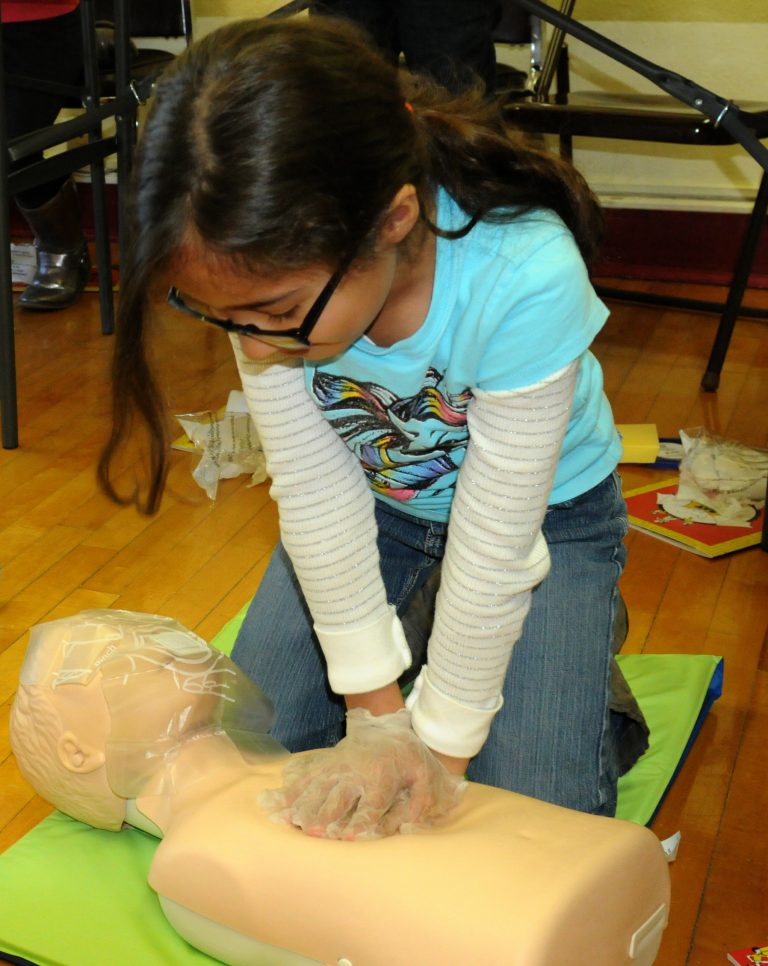
A girl practices cardiopulmonary resuscitation during a basic first-aid class at a Texas Red Cross training centre. Photo credit: Army Medicine, via Wikimedia Commons
Coordinated and comprehensive public health initiatives around cardiopulmonary resuscitation (CPR) and defibrillation led to more patients receiving such measures by bystanders, which was associated with improved survival, according to research by a UBC cardiologist.
Almost 400,000 Americans experience out-of-hospital cardiac arrest (OHCA) annually, but less than 10 per cent of them survive to hospital discharge. Although up to 80 per cent of all OHCAs occur at home, those who experience an at-home OHCA are four times to five times less likely to survive compared to those who experience an OHCA in public locations.
In 2010, North Carolina implemented public health initiatives to improve bystander and first-responder interventions by training members of the general population in CPR and in the use of automated external defibrillators (AEDs), teaching first responders about team-based CPR, and instructing dispatch centers on recognition of cardiac arrest.
Clinical Assistant Professor Christopher Fordyce and colleagues analyzed a North Carolina registry of people who experienced out-of-hospital cardiac arrest, and found that after those comprehensive public health initiatives, the proportion of patients receiving bystander CPR increased at home (from 28 percent to 41 percent) and in public (from 61 percent to 71 percent).
The study, published in JAMA Cardiology, also found that first-responder defibrillation increased at home (from 42 percent to 51 percent) but not significantly in public (from 33 percent to 38 percent). Survival to discharge improved for arrests at home and in public.
Dr. Fordyce, Associate Director of the Cardiac Intensive Care Unit at Vancouver General Hospital, did the research while on a fellowship at Duke University. He and his collaborators stated in the article that “adopting some of these public health initiatives may likely be helpful for communities aiming to improve outcomes of OHCA.”
The study notes some limitations, including that this was an observational study for which unmeasured or unmeasurable confounders could explain improved temporal outcomes independent of public health initiatives.